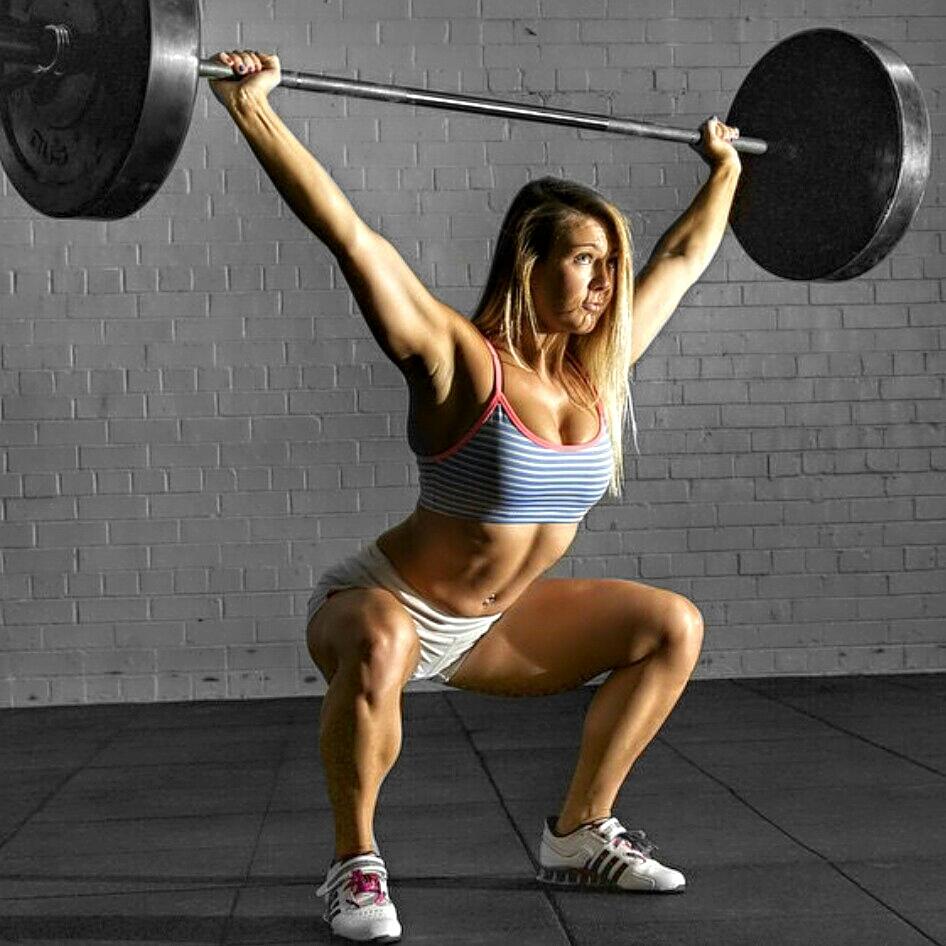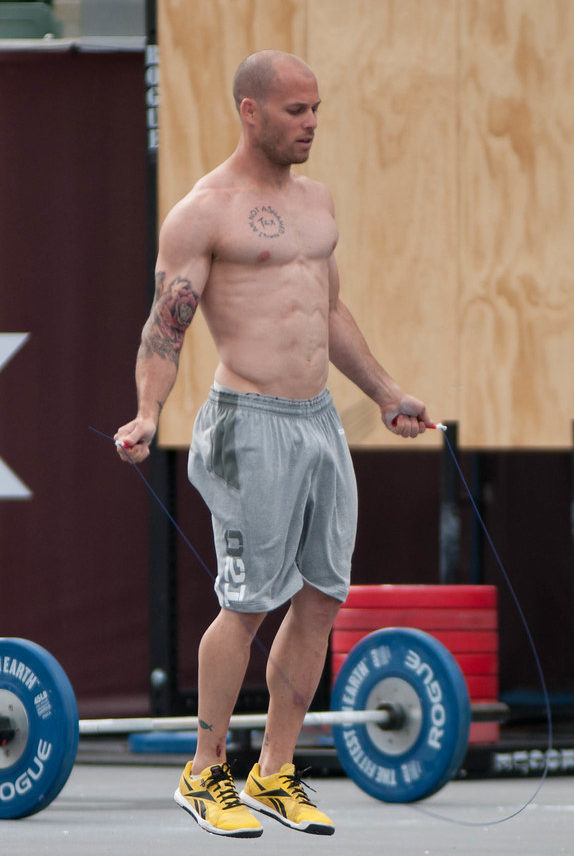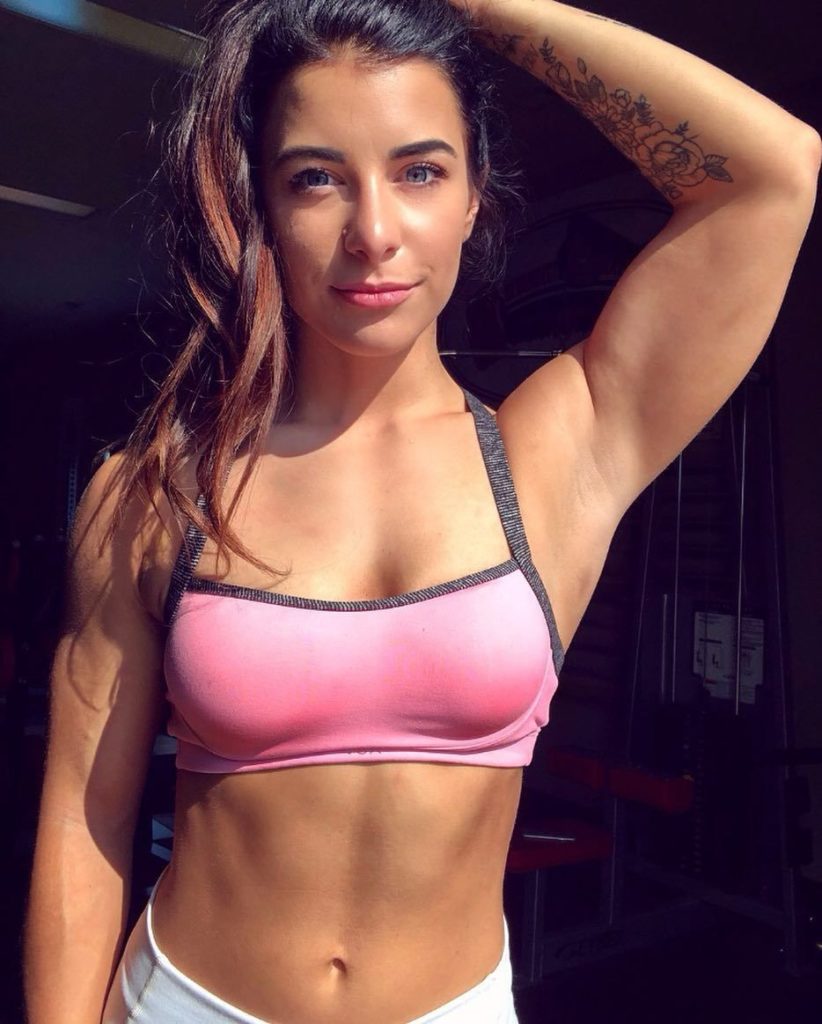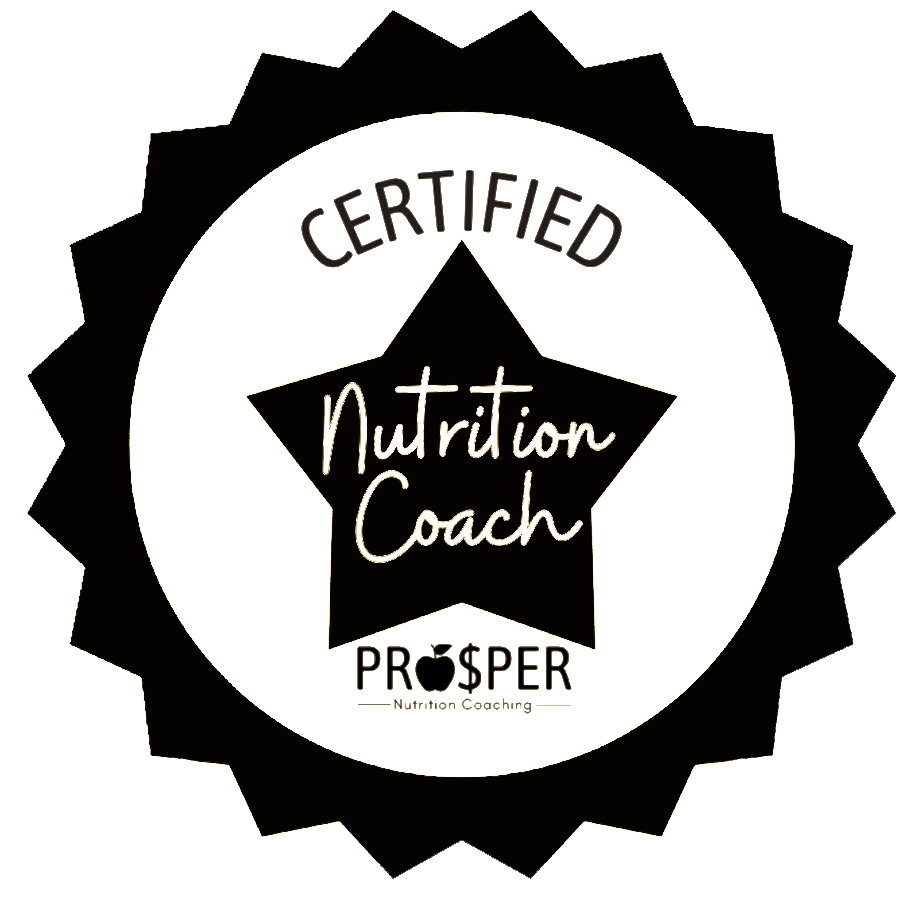As a CrossFit Coach, this is one of the MOST common questions I have been asked by personal training clients and athletes. It is also one of the most common statements that I have heard uttered in a gym environment. So…does lifting weights make you bulky?
In an effort to be as succinct as possible I will first answer with this – NO. Lifting weights will not make you bulky!

So, why do I say this? Starting an exercise programme like CrossFit means you will likely gain some muscle mass. If this concerns you, perhaps remember these next few points.
- It takes a LOT of effort to see significant increases in muscle mass. The men and women you typically see at the CrossFit Games are professional athletes. They train for hours a day and dial in their nutrition to a standard far above us mere mortals. So yes, their bodies look different to many of us.
- If you feel that you are getting “bulkier” then take a detailed look at your body fat percentage. Chances are that what you are unhappy with is actually excess body fat. Muscle takes up less space on the body and the “toned” look you are after is probably the same muscle mass with an absence of that excess body fat.
- CrossFit is infinitely scalable. Just as you can adjust the weight if you do not have the strength, or the movement if you do not have the skills, you can also change the focus of your workout. Choose lighter weights, focus more on the intensity or even just emphasise the quality of the movement. A good box and good Coaches will understand and support you.
- Seriously think through your goals. Aesthetic goals are mostly subjective and can often be a result of some external “norm”. Is a fitter, healthier, stronger and more capable version of yourself worth trading for a more “socially accepted ideal”? Would you rather be training in pursuit of a muscle-up, handstand, snatch…or in pursuit of that extra 50 calories on the stationary bike?
Now, as with most things in life, everything is not separated into black and white. There are certain amounts of grey area in between. So, in true CrossFit fashion, perhaps we should start off with some definitions to clarify things:
Bulky – This is a very subjective and loose term, but in the world of fitness I have come to understand this as the “undesirable” outcome of a large increase in muscle mass. The most common askers of the above question have been females that do not wish to look less feminine, or from endurance athletes who are worried about the effects of extra muscle mass on their performance in their chosen sport.
Toned – the presence of body muscle and the absence of body fat.
Toning – the process of gaining muscle and losing body fat.
I use these terms because, once again, they are extremely popular words in the fitness community. However, they can be misleading and subjective. And yes, the most common source of this question comes from the ladies. And I completely understand the perspective and the concern that weight training may result in more muscle and therefore a less feminine aesthetic. However, there is a LOT more to building muscle than simply lifting weight.
Lifting heavy weight has more to do with your nervous system
Training to improve strength requires lifting very heavy weight for relatively few reps. This has more to do with the function of your nervous system and the ability to lift the weight efficiently, than it does your muscle mass. There are very small weightlifters out there capable of lifting some incredibly heavy weight. Muscle mass makes a difference, of course. But the chances are, unless you have been part of a dedicated strength programme for many years already, you have not reached your strength potential for the size and weight you already are.

Bodyweight – 64kg. Max snatch – 108kg
It takes a lot of effort to gain muscle
Dedicated hours to the particular type of training that bodybuilders perform will make you more muscular. So, unless you are employing a specific bodybuilding routine, over a considerable period of time, there is a good chance that you are not going to attain such levels of muscle mass.
It takes a lot of food to gain muscle
You need to be eating a caloric excess and supporting muscular hypertrophy (growth) with plenty of protein to be in with a chance of getting exceedingly “bulky”.
Muscle is denser than fat
You have probably heard the rumour that muscle weighs more than fat. Well, this is not technically true. I mean, which weighs more? A tonne of feathers or a tonne of bricks? Muscle is a denser tissue than fat. That means that a kilogram of muscle will look smaller than a kilogram of fat. So, losing 5kg of fat mass whilst gaining 5kg of muscle mass, despite you weighing the same, is likely to result in you actually looking smaller.
Hormones Females and males have a different hormone profile. Women generally have lower levels of hormones that can help aid muscle growth (testosterone is one) than men do. Of course, there are differences within genders too. Some females may find it easier to gain muscle mass than others, just as some males will find it much harder. Genetics comes into play, as does environment

In conclusion…
Define what is most important to you in terms of your health and fitness goals. If you want to perform to the best of your ability within CrossFit then you will probably have to accept a small increase in your muscle mass. The capability of your new physique will be a far more beautiful thing than any aesthetic “ideal”.
To find out more about Personal Training please visit our website to book a FREE consultation.
Written by James Macdonald – Coach






